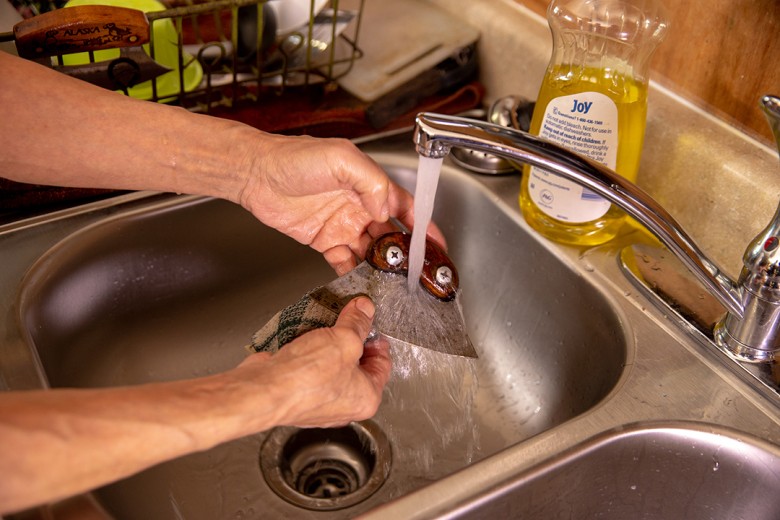Alaska communities to receive more than $440 million to improve water and wastewater infrastructure
September 20, 2023
The Indian Health Service (IHS) recently announced Alaska is receiving more than $440 million to improve sanitation infrastructure in communities across the state. The funding is awarded through the Infrastructure Investment and Jobs Act (IIJA) of 2021, Congressionally Directed Spending (CDS), and the FY23 IHS enacted budget.
Championed by the Alaska Congressional Delegation, funding through IIJA will enable numerous communities to obtain access to modern water and wastewater systems, many for the first time ever. The Alaska Native Tribal Health Consortium will receive the funding from the IHS to carry out these projects.
“Access to clean water and sanitation systems has a direct connection to the physical, environmental, and economic health of individuals and communities,” said ANTHC President and CEO Valerie Nurr’araluk Davidson. “Quyana to the Tribal leaders, communities, and the Alaska Congressional Delegation who have worked tirelessly to ensure Alaskans, regardless of where they live, have basic infrastructure that supports healthy lives.”
“As a result of this significant investment, we will be able to fund 42 projects in communities across the state,” said David Beveridge, ANTHC VP of Environmental Health, Engineering and Facilities Services. “We’re excited to work with communities in all phases of projects, from planning and construction, to training and employing local teams who know how to get work done.”
The Infrastructure Investment and Jobs Act of 2021, often referred to as the Bipartisan Infrastructure Law, is providing water and sanitation infrastructure funding to be distributed over a span of five years. Prior to its passage, First Lady Jill Biden visited ANTHC to promote safe, effective vaccination. During her visit she inquired about the leading public health issue in Alaska.
President Davidson shared the impact the lack of running water and sewer had in communities during the pandemic. Shortly after First Lady Biden’s visit, the IIJA framework included significant funding for rural water and sewer systems nationwide.
Background
This funding announcement means 42 new projects will be funded by IHS in FY23, seven of which will be providing community-wide first service facilities.
The Indian Health Service uses the Sanitation Deficiency System. This system is a collaborative process in which communities work with ANTHC, IHS, and other entities to identify sanitation needs, develop and agree upon solutions, and prepare all documentation required for the prioritization and funding decision process by IHS.
On average, it takes 6 to 8 years from the time funding is received until construction is completed. This timeline includes the recent funding announcement, to final planning, design, construction, and operational support. Construction of projects that result from the funding obtained will not begin for 2-3 years until design has been completed. Depending on the complexity of the project, the construction phase can take between 4 to 6 years.
IIJA Process
The Infrastructure Investment and Jobs Act, also known as the Bipartisan Infrastructure Law, passed in 2021, made $700 million available nationwide, annually from 2022 to 2026, for water and sanitation systems that serve Alaska Native and American Indian people across the country. Each year, Tribes and the organizations that serve them submit projects for review by the Indian Health Service (IHS). IHS reviews the projects and determines each project’s status. When IHS deems a project “ready to fund,” IHS assigns a score to each “ready to fund” project. That score determines prioritization and funding follows that prioritization.
Of the $675 million dollars available specifically for IIJA sanitation projects across the nation, ANTHC received over $415 million for projects across the state. IHS provided $13 million from Congressionally Directed Spending earlier this year and it is expected they will provide an additional $11 million from the FY 23 enacted sanitation facilities construction budget.
